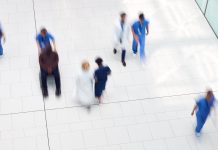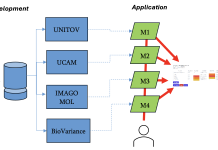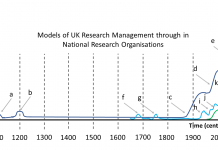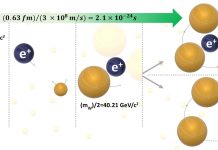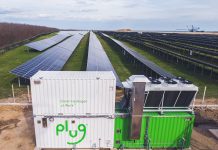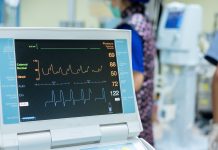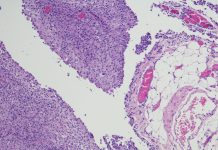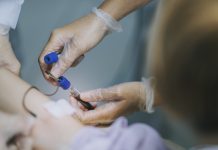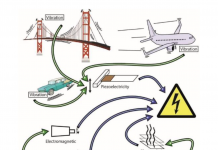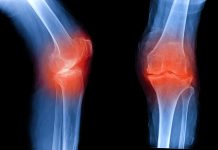Open Access Government produces compelling and informative news, publications, eBooks, and academic research articles for the public and private sector looking at health, diseases & conditions, workplace, research & innovation, digital transformation, government policy, environment, agriculture, energy, transport and more.
Home Search
en - search results
If you're not happy with the results, please do another search
The future of AVS, dizziness, and vertigo in emergency departments: Part II. Policy innovations...
In the second article of this five-part series, Dr Millie Nakatsuka discusses the barriers that contribute to the overuse of neuroimaging associated with the diagnosis of acute vestibular syndrome and proposes systemic reform.
The need for green and sustainable healthcare amid climate challenges
Each week seems to highlight the critical importance of sustainable healthcare solutions, to ready the service for undeniable changes in our climate. Having recognised the emerging threat and defining its Net Zero target timeline, the NHS is now in a pivotal phase for turning ambition into action.
The European REVERT Project: An ai-based dss for treatment selection
Find out here about the European REVERT project, an AI-based DSS for treatment selection.
Do research software engineers have research methods?
Dr Joanna Leng, School of Computing, University of Leeds, Dr Phillip Brooker, School of Sociology, University of Liverpool and Emeritus Prof Wes Sharrock, School of Sociology, University of Manchester, all from the UK, ponder if Research Software Engineers have research methods, plus why today, we have increasingly more types of academic research institutions and organisations.
STEM programs: Encouraging an early start with engineering design
Nancy Butler Songer, Associate Provost of STEM Education at the University of Utah, highlights the importance of introducing STEM programs to younger students.
Thermodynamics of hadronization: The rotating lepton model explains key CERN experiments
Constantinos G. Vayenas, Professor at the University of Patras, Academy of Athens, explores the thermodynamics of hadronization, using the Rotating Lepton Model and two key CERN experiments.
Northeast Greenland’s 79° N-Glacier rapidly melting
Ground-based measuring devices and aircraft radar reveal a loss of ice from the 79° N-Glacier, a critical indicator of the impacts of global warming...
A call to boldly support the hydrogen sector
Plug Power calls on the European Union to take inspiration from the tremendous success of the first Hydrogen Bank Auction to take a bolder step in supporting the hydrogen sector.
Benjamin Haycraft – Plug Power Europe
Benjamin Haycraft is the Executive Vice President of the EMEA region for Plug where he oversees business initiatives and operations in Europe, Middle East...
The Importance of early cardiac screening for young people
Drawing on the charity’s work, Dr Steven Cox, Chief Executive of Cardiac Risk in the Young (CRY), explains why the UK Government must re-think its approach to specialist cardiac screening to reduce mortality among young people with conditions that can cause sudden cardiac death.
Dr Steven Cox – Cardiac Risk in the Young (CRY)
Steve is the Chief Executive of the national charity Cardiac Risk in the Young (CRY).
As an elite athlete on a university tennis scholarship in...
Leveraging data to support widening participation past the point of entry
Technology is not a simple fix for complex societal needs, but it can enable institutions to evaluate the impact of widening participation initiatives, and can go on to support disadvantaged students once they are through the front door.
Why more needs to be done to prevent mesothelioma
Decades after the ban on asbestos, we still struggle with the impact of mesothelioma – is it possible to eliminate this devastating cancer? We put the question to UK charity Asthma + Lung UK.
Investigating lung cancer using genetically engineered mouse models (GEMMS)
Daniel J. Murphy, Professor of Lung Cancer & Mesothelioma at the University of Glasgow, School of Cancer Sciences, discusses opportunities for improving cancer research and care through the use of genetically engineered mouse models.
A blood test breakthrough could help identify hidden tuberculosis cases
Scientists from the University of Southampton are on the verge of unveiling a blood test that could uncover millions of undetected tuberculosis (TB) cases.
The opioid crisis in canada – Governmental responses and strategies
Norm Buckley, Scientific Director at the Michael G. DeGroote Institute for Pain Research & Care, and Jason Busse, Director of the Michael G DeGroote National Pain Centre at McMaster University, discuss the complexities of chronic pain management and addressing the opioid crisis.
Energy harvesting for unlimited lifetime systems
The Internet of Things (IoT) and services, wireless sensor networks (WSNs), trillions of sensors, Industry 4.0, and digitalisation – all these are hungry for data, and their common challenge is energy.
Ancient galaxies “Shakti” and “Shiva” were discovered in the Milky Way
Astronomers have identified what could be two of the Milky Way's earliest building blocks, "Shakti" and "Shiva".
Knee OA therapy offers pain relief to patients
A patient with knee osteoarthritis (OA) provides a testimonial for "wonder" therapy that has relieved painful symptoms.
Neurodiversity Celebration Week 2024: Destigmatising neurodivergence in the UK
Neurodiversity Celebration Week 2024 runs from 18-24 March 2024; this week is organised to raise awareness of neurodiversity.


